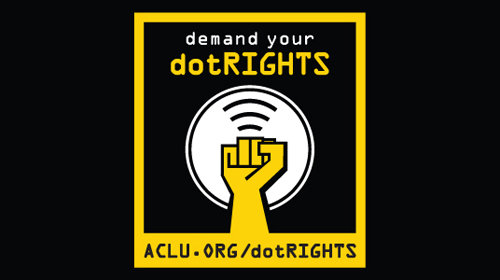
In the digital age that we live in today, we are constantly exposing our personal information online. From using cell phones and GPS devices to online shopping and sending e-mail, the things we do and say online leave behind ever-growing trails of personal information. The ACLU believes that Americans shouldn’t have to choose between using new technology and keeping control of your private information. Each week, we feature some of the most interesting news related to technology and civil liberties that we’ve spotted from the previous week.
[Associated Press]
“Attorneys for Facebook and the American Civil Liberties Union want a federal appeals court to rule that clicking “Like” on the social networking site is constitutionally-protected free speech.”
See Also [Brock Vergakis]
See Also ACLU & Facebook Tell Appeals Court That “Like” Is Free Speech [ACLU – Josh Bell]
Bad News On Warrantless GPS Tracking [ACLU – Catherine Crump]
Today the U.S. Court of Appeals for the Ninth Circuit issued a disappointing but fortunately narrow decision in a case involving warrantless tracking of a vehicle with a GPS device. The three-judge panel refused to exclude GPS tracking evidence under what’s known as the “good faith” exception, ruling that when the tracking took place, law enforcement agents reasonably relied on binding circuit court precedent in concluding that no warrant was necessary. The tracking happened before the Supreme Court issued its decision in United States v. Jones that GPS device tracking triggers Fourth Amendment protections.
See Also [Wall Street Journal - Jess Bravin]
[Wired – David Kravets]
"The federal government may spy on Americans’ communications without warrants and without fear of being sued, a federal appeals court ruled Tuesday in a decision reversing the first and only case that successfully challenged President George W. Bush’s once-secret Terrorist Surveillance Program."
See Also [EFF – Cindy Cohn]
[EFF – Eva Galperin and Jillian C. York]
"Because Twitter’s policy is to require valid legal process before it will hand over user data, very few of these requests were granted in part or in whole. But if Twitter were to loosen this requirement—as many of yesterday’s commentators have suggested it ought to—it would make it far easier for governments to violate user privacy and demand information be censored."
See Also [New York Times – Wendy Ruderman]
See Also [Ars Technica – Casey Johnston]
[Consumerist – Chris Morran]
"Because Google didn't learn anything from the , the company has now decided to begin testing the integration of users' Gmail content into general search results. So a search for Amazon on Google.com would also bring up a sidebar with e-mails from or related to your Amazon purchases."
See Also [Associated Press]
[Information Week – Dan Taylor]
"New York Mayor Michael Bloomberg unveiled Wednesday a new surveillance system, developed in partnership with Microsoft, that incorporates information from license plate readers, street cameras, and other sensors distributed around the city."
[Engadget – Mat Smith]
"Google has agreed to pay a $22.5 million penalty to settle its dispute with the FTC, over the company's role in bypassing browser settings in Apple's Safari web browser. Although it stated that it wouldn't use tracking cookies or targeted ads in the web browser, a was discovered, violating a previous privacy settlement between the FTC and Google."
See Press Release [FTC]
See Also [Information Week – Thomas Claburn]
See Also [Privacy Choice]
Learn more about digital privacy: Sign up for breaking news alerts, , and .

